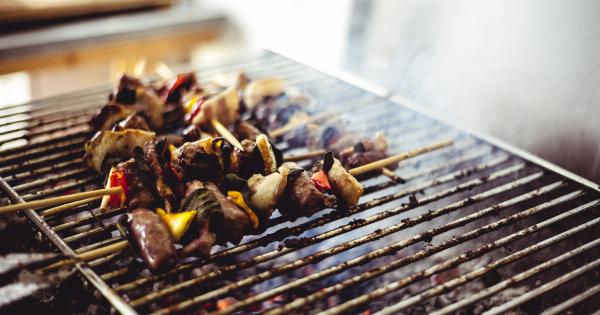Acid reflux, also known as gastroesophageal reflux disease (GERD), is a common digestive disorder that occurs when stomach acid flows back into the esophagus.
This can cause a variety of uncomfortable symptoms such as heartburn, regurgitation, and chest pain. While medication and lifestyle changes can help manage acid reflux, diet plays a crucial role in minimizing symptoms. Certain foods can exacerbate acid reflux and should be avoided.
In this article, we will explore the worst foods for acid reflux and provide some helpful insights for those seeking relief.
1. Citrus Fruits
Citrus fruits like oranges, lemons, grapefruits, and limes are highly acidic and can trigger acid reflux. The acidity in these fruits can irritate the esophagus and cause discomfort.
If you experience acid reflux, it’s best to avoid consuming citrus fruits or opt for low-acid alternatives like bananas or melons.
2. Tomatoes and Tomato-based Products
Tomatoes are a common trigger for acid reflux due to their high acid content. Whether consumed fresh or in the form of sauces, ketchup, or tomato-based dishes, they can worsen symptoms.
If you enjoy tomatoes, try removing the skin and seeds, as they contain higher acid levels. Additionally, opting for low-acid tomato varieties may also help reduce the likelihood of reflux.
3. Spicy Foods
Spicy foods are notorious for triggering acid reflux symptoms. The capsaicin present in chili peppers and spices can irritate the stomach lining, leading to heartburn and discomfort.
If you have acid reflux, it’s advisable to avoid spicy foods or opt for milder alternatives to mitigate symptoms.
4. Carbonated Drinks
Carbonated beverages like soda, sparkling water, and even certain energy drinks can contribute to acid reflux.
The carbonation process involves the release of air bubbles, which can increase pressure in the stomach and force acid back into the esophagus. Therefore, it’s wise to limit or eliminate consumption of carbonated drinks if you regularly experience acid reflux.
5. Fried and Fatty Foods
Fried and fatty foods can trigger acid reflux as they may relax the lower esophageal sphincter (LES), a muscle that helps prevent stomach acid from flowing back up.
Foods like french fries, deep-fried meats, and greasy snacks should be consumed in moderation or avoided altogether if you are prone to acid reflux.
6. Coffee and Caffeinated Beverages
While a cup of coffee can be a comforting start to the day, it can also worsen acid reflux symptoms. Caffeine stimulates the production of stomach acid and can relax the LES, allowing acid to reflux into the esophagus.
If you experience acid reflux, it may be wise to limit your caffeine intake or switch to decaffeinated alternatives.
7. Chocolate
For some, indulging in a piece of chocolate can be a delightful treat, but for those with acid reflux, it might be best to avoid it. Chocolate contains a compound called theobromine, which can relax the LES and contribute to acid reflux symptoms.
Opting for carob-based sweets or white chocolate can be a safer alternative.
8. Mint and Peppermint
Despite its reputation for soothing digestive issues, mint and peppermint can actually worsen acid reflux symptoms. These herbs can relax the LES and lead to the regurgitation of acid.
If you’re experiencing acid reflux, it’s advisable to limit your intake of mint-flavored products, including gum and candies.
9. Onions and Garlic
While onions and garlic add flavor to many dishes, they are known to exacerbate acid reflux symptoms. These ingredients contain high levels of fermentable fiber, which can promote the production of stomach acid.
If possible, try reducing the amount of onions and garlic in your meals or considering alternatives like herbs and spices for flavor.
10. Alcohol
Alcohol can relax the LES and stimulate the production of stomach acid, making it a common trigger for acid reflux. If you enjoy alcoholic beverages, it’s best to consume them in moderation or opt for lower-acid options like wine or light beer.
It’s also crucial to avoid mixing alcohol with carbonated drinks, as this combination can compound reflux symptoms.
Conclusion.
While every individual experiences acid reflux differently, certain foods are commonly known to trigger or worsen symptoms.
By avoiding or minimizing the consumption of citrus fruits, tomatoes, spicy foods, carbonated drinks, fried and fatty foods, coffee, chocolate, mint, onions, and alcohol, individuals can mitigate acid reflux discomfort. Each person may have unique triggers, so it is essential to pay attention to personal reactions and keep a food diary to identify specific foods that worsen symptoms.
Adopting dietary modifications, along with other recommended lifestyle changes, can significantly alleviate acid reflux and improve overall quality of life.






























